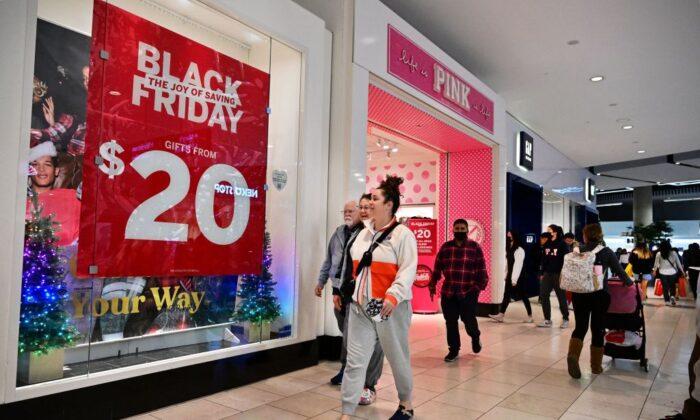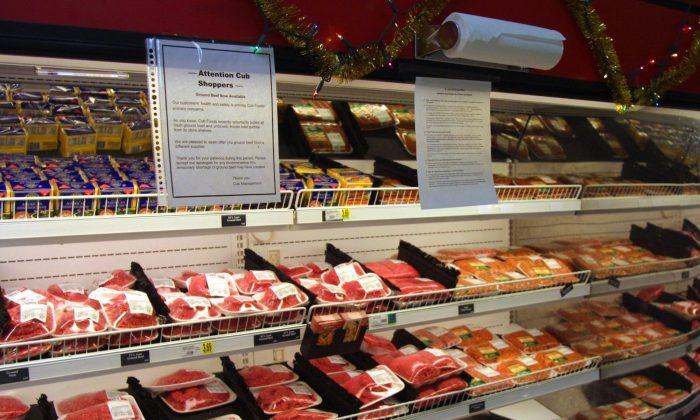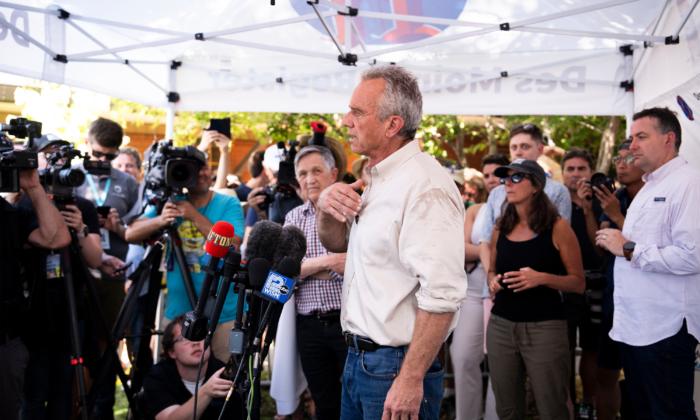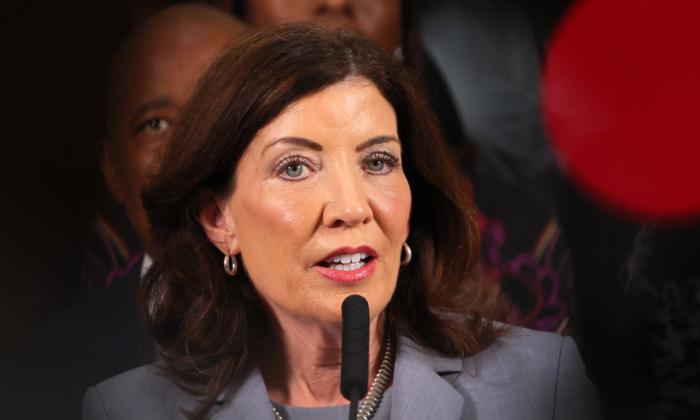Declining fears over inflation lifted American consumers’ spirits this month.
Consumers’ near-term inflation expectations dropped to more than a two-year low this month, while the outlook for the next five years improved slightly, according to the University of Michigan’s Survey of Consumers, published on June 16.
The university survey followed the release of the Department of Labor’s Consumer Price Index (CPI) and Producer Price Index (PPI) this week, which showed annual consumer and producer prices declining in May, mainly due to falling energy costs.
The Federal Reserve on June 14 decided to not hike interst rates this month, but signaled two future, additional hikes of 25 basis points each, to raise interest rates to a range of 5.50–5.75 by the end of 2023.
University Survey Shows Positive Signs for US Economy
The University of Michigan’s survey reading of one-year inflation expectations dropped to 3.3 percent in March—its lowest level since March 2021—from 4.2 percent last month, according to Surveys of Consumers director Joanne Hsu.
The reading’s five-year inflation outlook fell to 3.0 percent from 3.1 percent in May, staying within the narrow 2.9–3.1 percent range in 22 out of the last 23 months.
The overall consumer sentiment gauge for June increased from 59.2 in May to 63.9, in the first estimate, representing a 8 percent for the month, which is its highest level since February.This was likely a reflection of greater consumer optimism due to easing inflation and the resolution of the debt-ceiling crisis, reported Hsu.
Overall outlook regarding the economy surged 28 percent over the short run and 14 percent over the long run.
The sentiment index is now 28 percent above the historical low from a year ago, and there are signs that it may resume an upward trajectory again.
“As it stands, though, sentiment remains low by historical standards as income expectations softened, said Hsu, adding that ”a majority of consumers still expect difficult times in the economy over the next year.”
Meanwhile, inflation expectations for the next year tumbled to 3.2 percent in June from 4.2 percent last month, the lowest since March 2021.
The survey’s current conditions index also climbed to a reading of 68.0 from 64.9 in May, while the measure of consumer expectations rose to 61.3 from 55.4 last month.
Economic Fears Ease in June as Fed Slows Down Rate Hikes
Although inflation has subsided, it still remains well above the Fed’s 2 percent target.The Fed has raised interest rates from near zero since March 2022, engaging in its fastest policy-tightening cycle in over 40 years.
However, financial markets are predicting that the central bank will raise interest rates only one more time this year, but not twice, as stated at the Fed policy meeting, according to the CMEGroup’s Fedwatch tool.
Economists view the rise in sentiment as a sign that consumer spending will remain strong in the months ahead.
Consumers spending remains resilient, despite higher prices and borrowing costs mainly due to solid wage growth led by a tight labor market, say economists.
Commerce Department data from June 15 also showed an unexpected increase in retail sales last month.
However, most Americans still lack confidence in the economy, despite the unemployment rate sitting near a 50-year low, while the stock market witnesses gains and inflation begins to dip, as the widely expected deep recession appears far off.Wall Street stocks fell slightly today, and the dollar rose against a basket of currencies, while U.S. Treasury prices fell.
Reuters contributed to this report.




